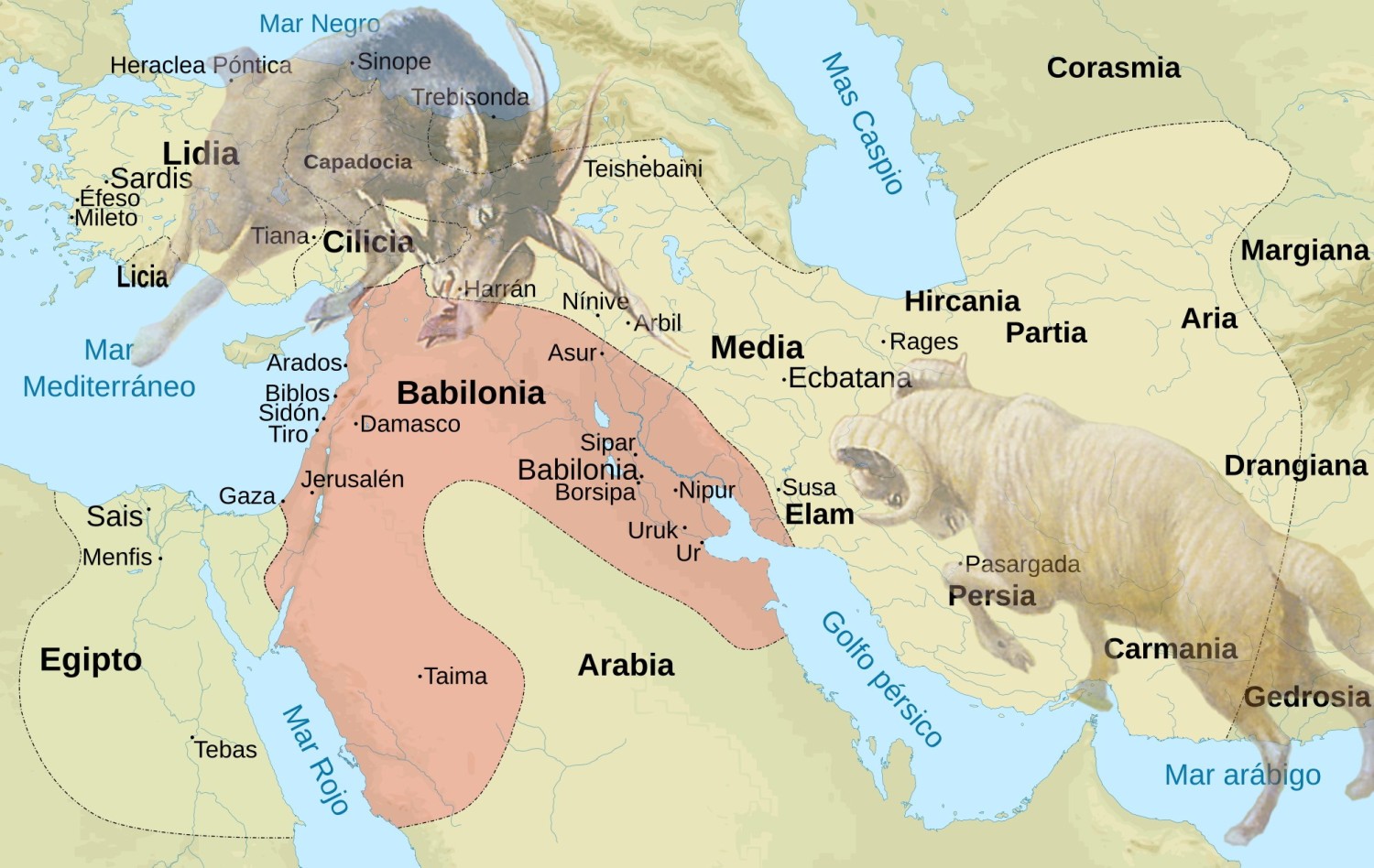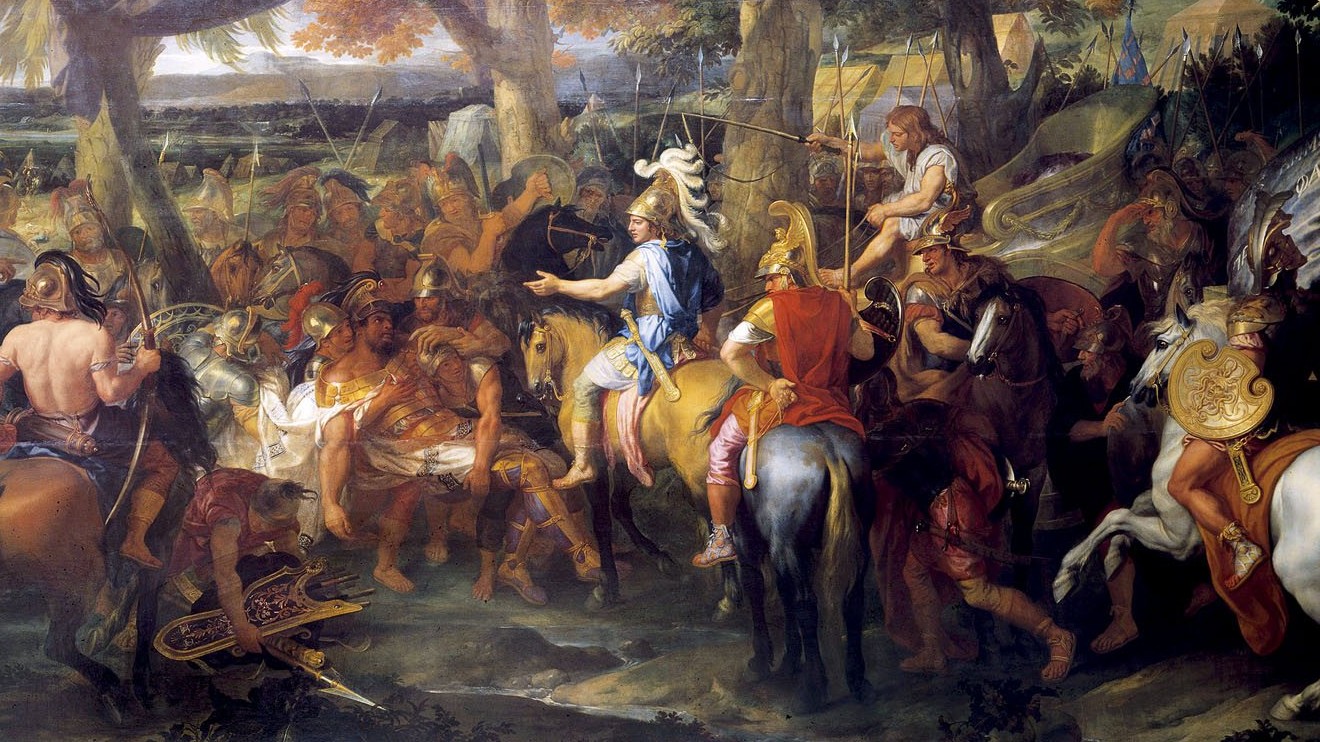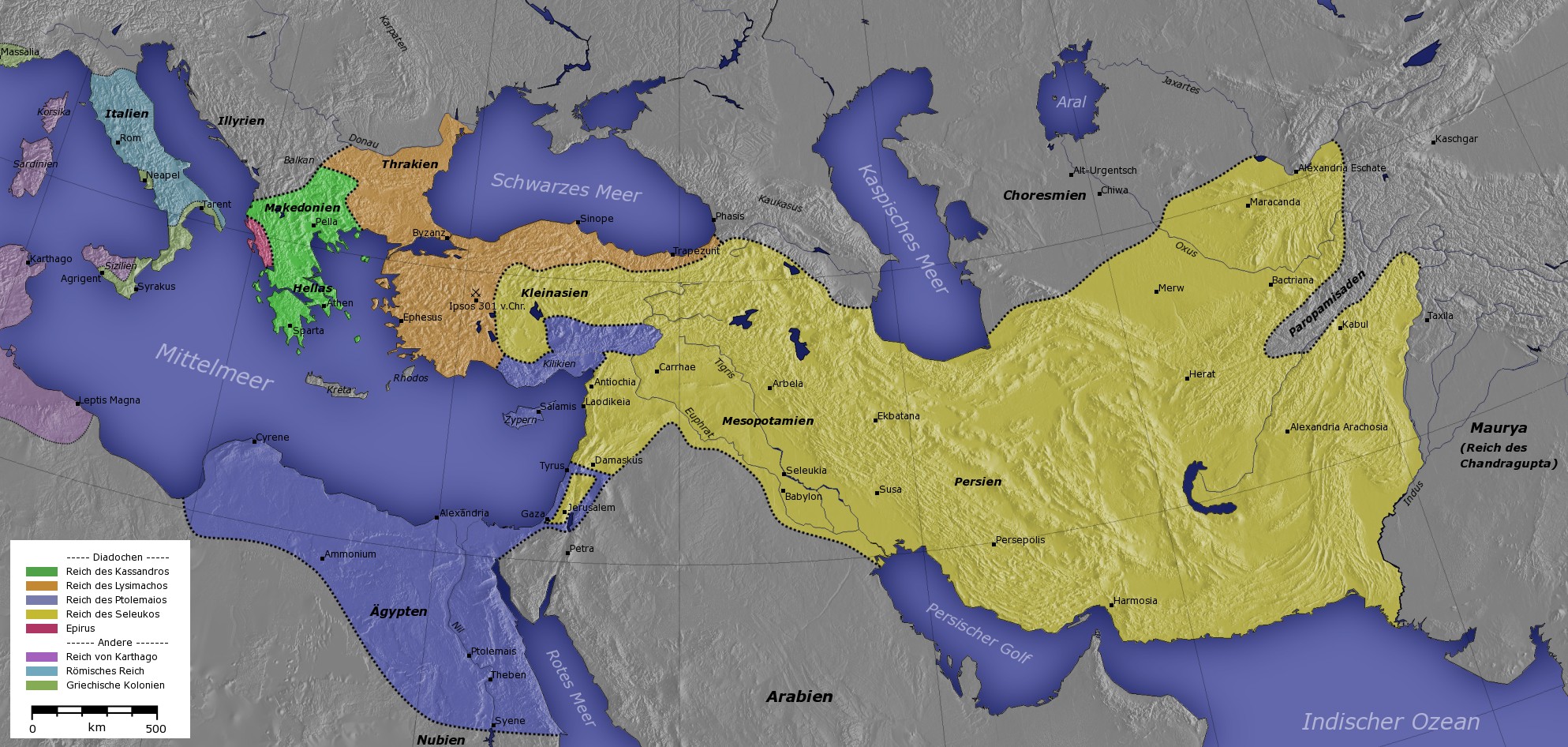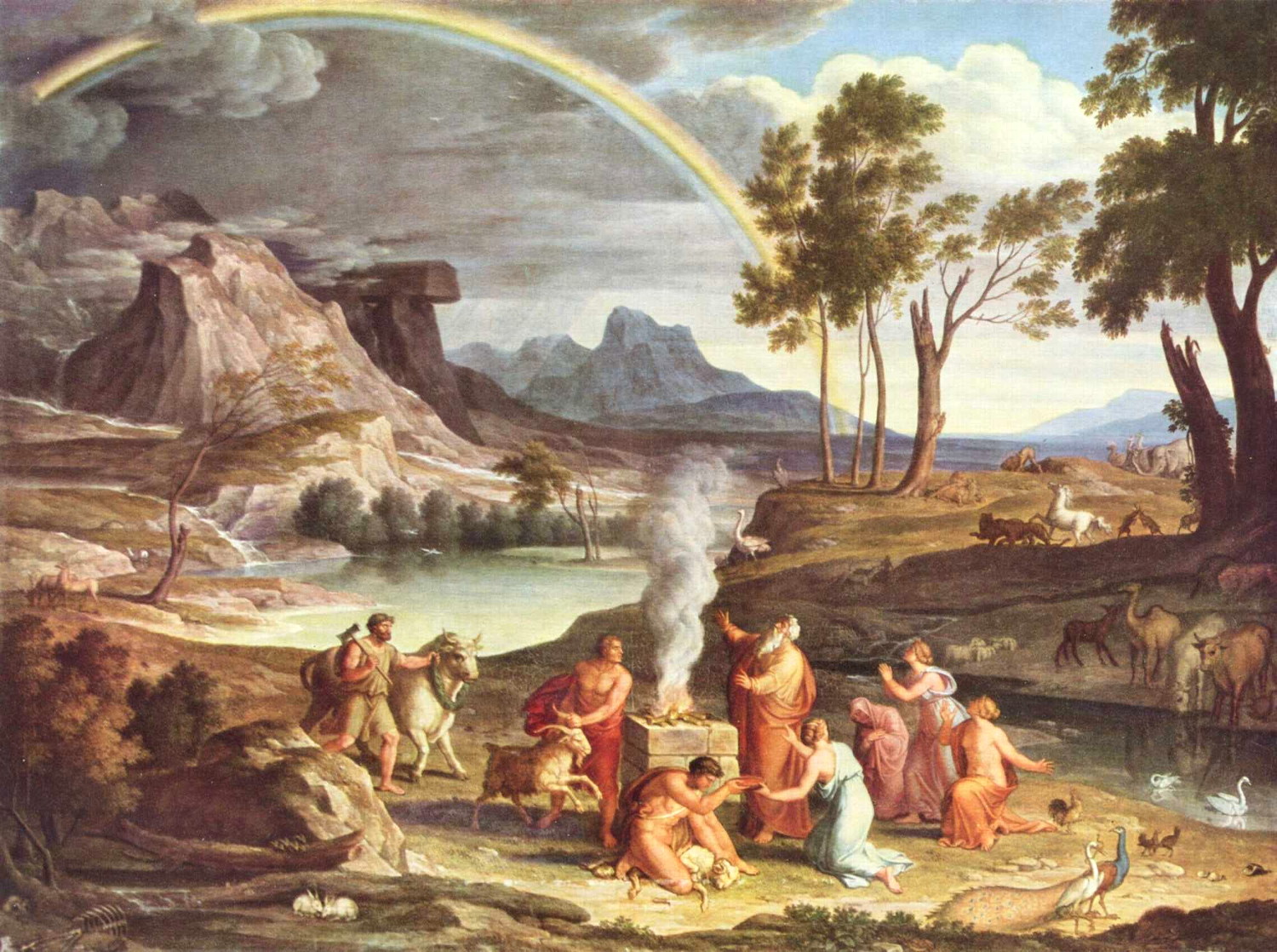The Ram and the Goat
Daniel 8

Daniel 8:1-2 (TS2009)
In the third year of the reign of Belshatstsar the sovereign, a vision appeared to me, Daniel, after the one that appeared to me the first time. And I looked in the vision, and it came to be while I was looking, that I was in the citadel of Shushan, which is in the province of Eylam. And I looked in the vision, and I was by the River Ulai.
In this vision Daniel was taken to Susa, an important Persian city and the capital of Elam (Esther 1:2), shortly before the fall of the Neo-Babylonian Empire. The location borders between the Babylonian Empire and Media and Persia. Belshazzar was the last Babylonian king. In the year 539 BC the Babylonian Empire would be overtaken by the Medo-Persian Empire.
The Ram
Daniel 8:3-4 (TS2009)
And I lifted my eyes and looked and saw a ram standing beside the river, and it had two horns, and the two horns were high. And the one was higher than the other, and the higher one came up last. I saw the ram pushing westward, and northward, and southward, so that no beast could stand before him, and there was no one to deliver from his hand, while he did as he pleased and became great.
Daniel 8:20 (TS2009)
The ram which you saw, having two horns, are the sovereigns of Media and Persia.
The ram from the east represents the Achaemenid or Medo-Persian Empire which lasted roughly from 550 BC to 330 BC. Its most powerful king was Cyrus the Great. One horn was higher than the other which signifies that the king of Persia was more powerful than the king of Media. The Median Empire was followed by the more powerful Persian Empire. A horn represents a king or a lineage of kings within the kingdom or empire.
The Goat

Daniel 8:5-8 (TS2009)
And I was observing and saw a male goat came from the west, over the surface of all the earth, without touching the ground. And the goat had a conspicuous horn between his eyes. And he came to the ram that had two horns, which I had seen standing beside the river, and ran at him in the rage of his power. And I saw him come close to the ram, and he became embittered against him, and struck the ram, and broke his two horns. And there was no power in the ram to withstand him, but he threw him down to the ground and trampled on him. And there was no one to deliver the ram from his hand. And the male goat became very great. But when he was strong, the large horn was broken, and in place of it four conspicuous ones came up toward the four winds of the heavens.
Daniel 8:21-22 (TS2009)
And the male goat is the sovereign of Greece, and the large horn between its eyes is the first sovereign. And that it was broken and four stood up in its place: are four rulerships arising out of that nation, but not in its power.
The goat from the west represents the Greek Empire which began in 336 BC and its first and foremost ruler was Alexander the Great who conquered the Medo-Persian Empire. He came from the westover the surface of all the earth. Here we see that the phraseall the earthmeans all the earth under control of the Medo-Persian Empire at that time, and specifically all the earth inhabited by God's people, not necessarily the whole world. The prophecy says that it came from the westwithout touching the groundwhich signifies the speed with which Alexander conquered large parts of the world. The four rulers after Alexander's death were his generals Ptolemy, Seleucus, Cassander, and Lysimachus. They were not Alexander's descendants by blood, but they were his generals. The Ptolemaic Kingdom was based in Egypt, south of Israel. The Seleucid Empire was based in West Asia, north of Israel. Both these empires influenced Israel and they are called the Kings of the North and South which fought many wars against each other.
The little horn

Daniel 8:9-12 (TS2009)
And from one of them came a little horn which became exceedingly great toward the south, and toward the east, and toward the Splendid Land. And it became great, up to the host of the heavens. And it caused some of the host and some of the stars to fall to the earth, and trampled them down. It even exalted itself as high as the Prince of the host. And it took that which is continual away from Him, and threw down the foundation of His set-apart place. And because of transgression, an army was given over to the horn to oppose that which is continual. And it threw the truth down to the ground, and it acted and prospered.
Daniel 8:23-25 (TS2009)
And in the latter time of their rule, when the transgressors have filled up their measure, a sovereign, fierce of face and skilled at intrigues, shall stand up. And his power shall be mighty, but not by his own power, and he shall destroy incredibly, and shall prosper and thrive, and destroy mighty men, and the set-apart people. And through his skill he shall make deceit prosper in his hand, and hold himself to be great in his heart, and destroy many who are at ease, and even stand against the Prince of princes — yet without hand he shall be broken.
The Greek empire that became great toward the south, east and toward the Splendid Land, or Israel, was the Seleucid Empire. The Seleucids, like the Ptolemies before them, held a suzerainty over Judea, where they respected Jewish culture and protected Jewish institutions. That changed with one of their kings. The little horn or king of this empire who became exceedingly powerful is Antiochus IV Epiphanes. See also Kings of the North and South. He was Seleucid king from 175 BC until his death in 164 BC. His name stands for "God Manifest" and he is known for the bloody persecution and killing of Jews which led to the Maccabean Revolt. According to the Books of the Maccabees he outlawed Jewish religious rites and traditions and ordered the worship of the Greek pagan god Zeus. God allowed this to happen as a punishment because the Jews kept turning their backs on Him and violated His laws over and over again.
Without hand he shall be brokencould refer to the given that Antiochus IV Epiphanes died suddenly of disease in 164 BC.
2,300 evenings and mornings

Daniel 8:13-14 (TS2009)
Then I heard a certain set-apart one speaking. And another set-apart one said to that certain one who was speaking, Till when is the vision, concerning that which is continual, and the transgression that lays waste, to make both the set-apart place and the host to be trampled under foot? And he said to me, "For two thousand three hundred nights then that which is set-apart shall be made right."
The transgression that lays wasteis about the transgression of God's law by the people. God's prophets were ignored by many of God's people (Jeremiah 7:23-24, Proverbs 1:24-25). Even the Messiah was ignored by many. He was rejected and killed by the Jewish authorities. His disciples were persecuted and killed by them as well. They rejected God and didn't take care of God's people (Ezekiel 34). In the context of the Seleucid Empire it had to do with the struggle between traditional Jews and Hellenistic Jews. Hellenistic Judaism was seen as apostacy.
That which is continualrefers to the Old Testament burnt offering which symbolizes the coming of the Messiah who gave His life for the sins of the people. According to the Hebrew Interlinear another translation fortwo thousand three hundred nightsis "2,300 evenings and mornings" (ESV, Interlinear). This makes sense because the burnt offerings were given in the evenings and mornings, two offerings per day (Exodus 29:39, Numbers 28:4, 2 Chronicles 13:11). In 167 BC Antiochus ordered an altar to Zeus erected in the Temple. He banned circumcision and ordered pigs to be sacrificed at the altar of the temple. By 164 BC the Jewish revolt against the Seleucid monarchy was successful. The Temple was liberated and rededicated. The festival of Hanukkah was instituted to celebrate this event. So this period stands for 2,300 literal days of tribulation.
The time of the end
Daniel 8:15-19 (TS2009)
And it came to be, when I, Daniel, had seen the vision, that I sought understanding, and see, before me stood one having the appearance of a mighty man. And I heard a man’s voice between the banks of Ulai, who called, and said, “Gabriel, make this man understand the vision.” He then came near where I stood. And when he came I feared and I fell on my face, but he said to me, “Understand, son of man, for the vision is for the time of the end.” And, as he was speaking with me, I fell stunned upon my face to the ground, but he touched me, and made me stand up straight, and said, “Look, I am making known to you what shall take place in the latter time of the wrath, for at the appointed time shall be the end.
From the viewpoint of God's people who lived at the time of Danielthe time of the endrefers to the time before the (first) coming of the Messiah who would bring an end to that age with a renewed covenant. I think the importance of this vision is that it foretells an important event, namely the interruption of the burnt offerings in the temple and it serves as a foreshadow of the little horn that will emerge again in the time of the end before the second coming of the Son of God.